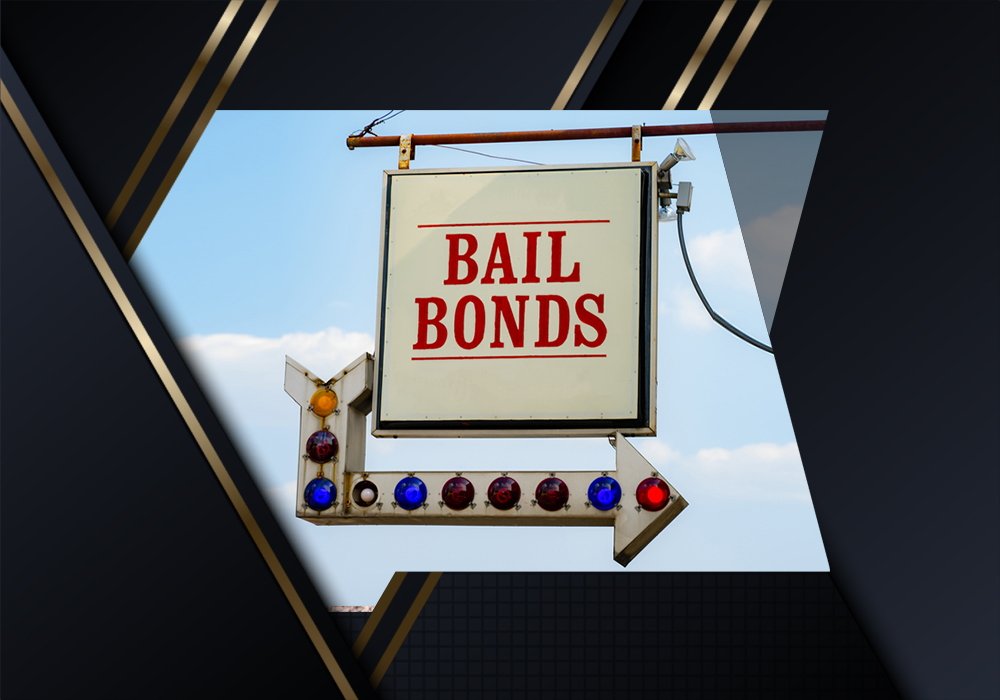Important Facts Everyone Should Know About non arrest bond Options
How to Navigate the Intricacies of a Bail Bond: Tips for First-Time Users
Steering the complexities of a bail bond can be overwhelming for those not familiar with the process. Many new individuals find themselves puzzled by the terminology and responsibilities entailed. Understanding vital ideas such as costs and security is necessary. Furthermore, picking a respectable bondsman can substantially ease the trip. There are essential facets and common mistakes that can make complex matters better. Exploring these can offer useful insights for any person facing this challenging situation.
Comprehending Bail Bond Terminology
What key terms should one recognize with when passing through the world of Bail bonds? Understanding basic terminology is necessary for maneuvering Bail bonds properly. The term "Bail" refers to the quantity of money or building called for to protect an offender's release from wardship, ensuring their appearance in court. "Bail bond" represents a contract between the accused, the court, and a bondsman, who gives the Bail amount for a fee, usually 10-15% of the overall Bail. "Collateral" may be needed, including properties pledged to ensure payment if the offender stops working to appear (bail bonds service). "Costs" is the non-refundable cost paid to the Bail bondsman for their services. Furthermore, "loss" happens if the defendant does not abide by court looks, bring about the loss of the Bail amount. Familiarity with these terms equips individuals to make informed choices throughout the Bail procedure
The Different Sorts Of Bail Bonds
When considering the different options for safeguarding an offender's launch, one may ask yourself regarding the various kinds of Bail bonds readily available. The most usual type is the guaranty bond, where a bondsman assures the full Bail amount in exchange for a cost, usually around 10%. Another alternative is a cash bond, which requires the defendant or their family members to pay the whole Bail quantity in money upfront, refundable upon court appearance. Home bonds entail the usage of realty as security to secure the Bail quantity. In addition, some territories provide government bonds for government offenses, which have specific requirements. Finally, there are migration bonds for individuals apprehended by migration authorities. Each type offers a distinct objective and might vary regarding cost and demands, making it important for novice customers to recognize their options completely prior to proceeding.
The Bail Bond Process Explained
Understanding the bail bond process is crucial for anybody maneuvering the judicial system. When a person is detained, a court sets a Bail amount based upon the extent of the costs and the offender's flight danger. A bail bond can be gotten via a certified Bail bondsman if the Bail is expensive. The accused or co-signer normally pays a non-refundable fee, normally around 10% of the complete Bail amount.
When the bond is safeguarded, the bail bondsman ensures the court that the defendant will stand for all scheduled hearings. If the offender stops working to appear, the bail bondsman is liable for paying the full Bail amount, which can lead to recuperation efforts to find the person. Throughout this process, communication with the Bail bondsman is necessary, as they provide support and support to guarantee compliance with court demands and obligations.
Your Legal rights as a Co-Signer
Co-signers play a necessary duty in the bail bond process, as they are legitimately liable for making certain that the offender abides by the problems of the bond. This obligation features details civil liberties that co-signers need to know. To start with, co-signers have the right to get complete disclosure concerning the terms of the bond, consisting of costs and prospective bonding company near me obligations. They also have the right to be educated if the defendant breaches any type of conditions of the bond, such as stopping working to show up in court.
In addition, co-signers can request a duplicate of the bail bond contract for their records. They are entitled to comprehend the effects of their financial dedication, including the opportunity of being held accountable for the sum total of the bond if the defendant does not abide. Inevitably, co-signers can withdraw their support under certain conditions, although this may need alerting the bail bond agent beforehand.

Common Blunders to Prevent
Steering the bail bond procedure can be complicated, and co-signers often make a number of common mistakes that can result in issues. One significant error is failing to read the whole Bail agreement, which might include critical conditions that impact their monetary responsibility. Additionally, co-signers occasionally take too lightly the relevance of understanding the accused's situation, including their court days and possible repercussions of non-compliance. An additional frequent mistake is overlooking to maintain interaction with the Bail bondsman, which can impede the procedure if concerns occur. Co-signers might likewise forget the economic implications of Bail, not totally understanding the why not try this out fees involved or the opportunity of shedding collateral. They could presume that when Bail is posted, their responsibility finishes, not realizing that they stay liable up until the instance is settled. Avoiding these challenges can greatly reduce the bail bond experience for novice customers.
Regularly Asked Inquiries

Just How Do Bail Bond Firms Figure Out the Costs Amount?
Bail bond business normally identify the costs quantity based on the overall Bail amount, the risk connected with the defendant, and the company's plans - bail bonds service. Factors like the accused's criminal history and flight threat additionally influence this decision
Can I Discuss the Terms of a Bail Bond?
The opportunity of negotiating bail bond terms differs by firm. Some bondsmen may provide adaptability, while others adhere strictly to established standards. It is advisable to discuss choices directly with the bail bond representative for clearness.
What Happens if the Offender Misses Their Court Day?
A bench warrant may be provided for their arrest if an offender misses their court date. Additionally, the bail bond might be waived, causing economic effects for the co-signer and prospective lawful difficulties for the offender.
Are Bail Bond Charges Refundable After the Case Ends?
Bail bond charges are typically non-refundable, despite the situation result. This charge makes up the bond representative for the service of safeguarding the defendant's release, covering risks and management how to find out bail amount prices included in the process.
Can I Make Use Of Security Besides Residential Property for a Bail Bond?
The question of using collateral past home for a bail bond commonly occurs. Many bail bond representatives approve different kinds of security, such as vehicles or useful things, but plans might vary by agency and territory.
"Bail bond" represents an agreement in between the defendant, the court, and a Bail bondsman, that offers the Bail quantity in exchange for a cost, commonly 10-15% of the overall Bail. The most common kind is the guaranty bond, where a Bail bondsman assures the complete Bail amount in exchange for a fee, commonly around 10%. If the Bail is expensive, a bail bond can be gotten via a qualified Bail bondsman. Co-signers play an essential duty in the bail bond procedure, as they are lawfully accountable for ensuring that the offender sticks to the problems of the bond (bail bonds service). Bail bond companies usually identify the premium amount based on the complete Bail amount, the risk associated with the defendant, and the business's plans